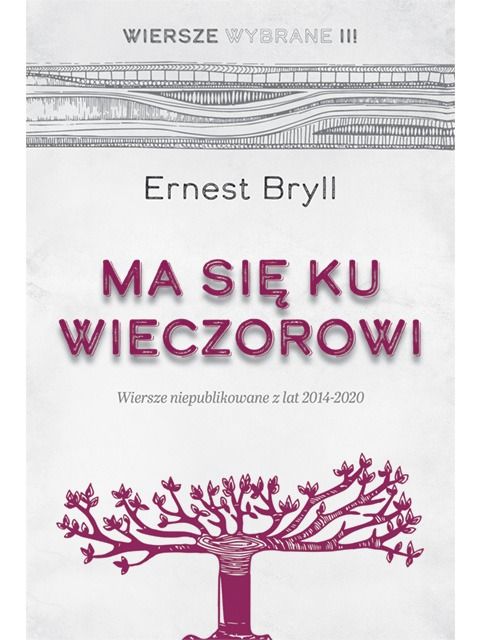A poetry of struggle with multiple darknesses

That Which I Do not Want
That which I do not want will be like a source
Difficult to drink from. On my knees,
But my knees are weak, my neck stiff,
Each drop in my throat protests
Till I drink with no grudge,
No disgust. Just like that, gulp after gulp.
That which I do not want will be like a source.
To drink from it is not so difficult after all.
A grey-brown fish
Darts through the depths.
My shadow perhaps.
We Took the Breath
We took someone’s breath? For sure
And the air is again blue for us
Hem of the dawn bus stop
At the bus stop packed night already waits
With all that was and has left
Doesn’t matter that someone is so
Short of breathing – nearly crying
Both day and shade came to claim us
It’s time for us until the eve
May this star grow
To guide
When our time to depart
For it we won’t return
our gathered breaths
At Night Trees Bloomed
At night trees bloomed
In snow. To the full. Believe me,
They won’t bring forth any fruit
As frost will come or thaw.
But for the moment it feels good
As in: just right. Neither too late nor early.
You waited for ripe cherries
Big orchard – the world at night.
Hung on the stars
Bloom apricot, pear and apple trees,
Frosty and strong. Up to the sky arc.
Translated by Elżbieta Wójcik-Leese
A poetry of struggle with multiple darknesses

Translation rights: Instytut Literatury, wydawnictwo@instytutliteratury.eu
Foreign language translations: Ernest Bryll is one of the most important contemporary poets. His works have been translated in many countries including: Croatia, the Czech Republic, Estonia, France, Germany, the UK, Italy, Spain, Russia, Ukraine – in anthologies.
It’s Getting Towards Evening: Unpublished Poems 2014–2020 by Ernest Bryll, born in 1935, the nestor of Polish poetry, features poems well-rooted in tradition – most importantly in the biblical tradition. What returns is an echo of the story about the road to Emaus, since it is getting towards evening, and the speaker again and again cannot recognise Christ walking. What can be strongly sensed in this work is the rhythm, not melodious; its deliberate breakdowns transform the poems into scenes for a bard or monologue performer. Bryll creates a poetry of struggle with multiple darknesses. He fights with the dark of his own memory, which keeps bringing forth illusions of old Poland – a country of a language and people long gone. These are also poems of struggle with the dark of the Venetian mirror, behind which sit dead viewers who do not understand much from the doings of those still alive. This suggestive metaphor leads Bryll to catastrophic conclusions about the modern world: the big City, choking on the forbidden Word. Hence his most recent poetry, though hiding behind rhythms at times hurdy-gurdy, bears witness to the horrific grotesque produced by contemporary people. They wrestle with the Word, “which is best left unknown,” which causes a “sore throat”: “That’s why in our city/ we constantly cough. Grunt and wheeze.” The City-Poland, similarly to the Besieged City of Zbigniew Herbert, published under the communist regime, is still under siege. The enemy does not lurk with weapons or threaten with tanks. Bryll formulates a bitter diagnosis: contemporary Europeans themselves have become a besieged city; they have shut themselves off behind the walls of self-censorship, political correctness, which sentences language and its most perfect form, poetry, to slow death. More and more often words do not refer us to objects; basic biblical signs are rendered illegible: “The star that led us has grown bald.”
Ireneusz Staroń
Translated by Elżbieta Wójcik-Leese
Selected samples
She climbed her first peaks in a headscarf at a time when women in the mountains were treated by climbers as an additional backpack. It was with her that female alpinism began! She gained recognition in a spectacular way. The path was considered a crossing for madmen. Especially since the tragic accident in 1929, preserved … Continue reading “Halina”
First, Marysia, a student of an exclusive private school in Warsaw’s Mokotów district, dies under the wheels of a train. Her teacher, Elżbieta, tries to find out what really happened. She starts a private investigation only soon to perish herself. But her body disappears, and the only people who have seen anything are Gniewomir, a … Continue reading “Wound”
A young girl, Regina Wieczorek, was found dead on the beach. She was nineteen years old and had no enemies. Fortunately, the culprit was quickly found. At least, that’s what the militia think. Meanwhile, one day in November, Jan Kowalski appears at the police station. He claims to have killed not only Regina but also … Continue reading “Penance”
The year is 1922. A dangerous time of breakthrough. In the Eastern Borderlands of the Republic of Poland, Bolshevik gangs sow terror, leaving behind the corpses of men and disgraced women. A ruthless secret intelligence race takes place between the Lviv-Warsaw-Free City of Gdańsk line. Lviv investigator Edward Popielski, called Łysy (“Hairless”), receives an offer … Continue reading “A Girl with Four Fingers”
This question is closely related to the next one, namely: if any goal exists, does life lead us to that goal in an orderly manner? In other words, is everything that happens to us just a set of chaotic events that, combined together, do not form a whole? To understand how the concept of providence … Continue reading “Order and Love”
The work of Józef Łobodowski (1909-1988) – a remarkable poet, prose writer, and translator, who spent most of his life in exile – is slowly being revived in Poland. Łobodowski’s brilliant three- volume novel, composed on an epic scale, concerns the fate of families and orphans unmoored by the Bolshevik Revolution and civil war and … Continue reading “Ukrainian Trilogy: Thickets, The Settlement, The Way Back”























































































































































































































































































